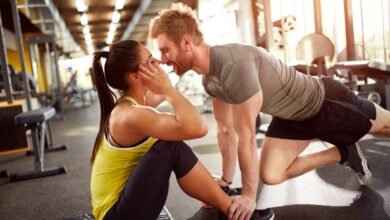When Should We Eat?

The proverb “eating late at night makes you store extra fat” may be familiar to you. Maybe someone informed you that it’s healthier for your metabolism to miss breakfast. There is a reason why eating plans like intermittent fasting are so well-liked among people looking to gain or lose weight without sacrificing their workout performance. The recurrent subject? eating period.
Read More: Eating Chocolate for Breakfast Improves Your Creativity and Focus
Bodybuilders and athletes have used “nutrient timing” for a very long time, and there has been ongoing research into its effectiveness for at least 50 years. Its main goal is to deliver one of three outcomes: a potent tool for fat loss, a natural boost to training performance, and a recovery aid. This makes it unsurprising that nutrition.
Eating prior to exercise:
Along with some supplements, such as pre-workouts, food can also be a very effective tool to help someone train as hard as possible. An effective pre-workout stimulates the central nervous system and dilates blood vessels, which increases energy production, stamina, and blood flow. However, using food can also provide equivalent effects. For instance, consuming a source of quickly absorbed carbohydrates prior to exercise can also improve performance. Though each individual has their own protocol. It is generally agreed upon that eating 40–60g of carbs 45–60 minutes prior to exercising is advantageous, especially if the person hasn’t eaten in a while. Pre-training carbohydrate consumption, such as that of Highly Branched Cluster Dextrin, frequently produces a more comfortable “pre-workout buzz” rather than a more natural boost. This is a routine that should be followed if your objective is to train for performance.
The Anabolic Window:
What follows is something you may be familiar with. The window of anabolism The contentious aspect of nutrient timing and the reason you down a protein drink right after working out! The 15–60 minute window following exercise when it is best to consume nutrients is known as the anabolic window. After completing your course, the idea is that your level due to the tension that exercise causes, blood flow to the muscular system is automatically increased. Consuming carbs after exercise has been linked to replenishing depleted glycogen stores, which greatly enhances recovery and performance. In a similar vein, consuming protein after exercise promotes muscle protein synthesis, which aids in muscle repair and the beginning of protein growth (MPS). Although both theories are true, human metabolism and nutrition are not quite so simple.
Read More: 5 Common Myths About Teen Nutrition
HYDRATION:
Hydration is crucial for the utilization of all nutrients, including fats, proteins, carbs, and timing. Whatever nutritional strategy you choose, drinking enough water is crucial for digestion, healing, and immunological support. This is so that water can accompany any vitamin after it has been digested and be used by the liver. Ideally, one should try to consume 2 liters of water every day, especially if they are following a strict exercise regimen.
The most crucial thing to remember is that your strategy must be effective for you regardless of whatever one you choose. The main takeaway is to experiment with nutritional timing. Modify your timing slightly and observe if this enhances or detracts your performance. You will figure out what works for you as it’s a marathon, not a sprint.








One Comment